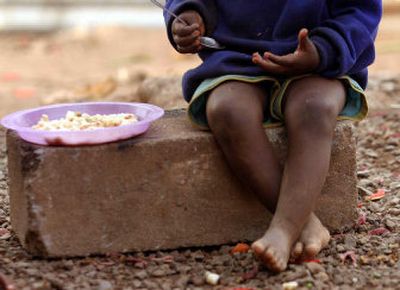Living standards fell, report says

UNITED NATIONS – An annual U.N. report on development released Wednesday shows that living standards in parts of the former Soviet Union and in sub-Saharan Africa have been steadily declining even while conditions elsewhere in the world have largely improved.
Norway tops the index, which seeks to assess nations’ economic development, dignity and quality of life, while Niger is at the bottom. The United States is ranked 10th. Iraq, Liberia and Afghanistan are not included because of the lack of reliable statistics, and Liechtenstein is absent because it did not provide income information about its generally wealthy citizens.
“The index shows in clear, cold numbers that many countries are not only failing to progress, but are actually slipping backward, and they will continue on that downhill path unless the international community steps in to help with more resources and new policies,” said Kevin Watkins, the main author of the report.
The United Nations delivered the survey to the New York missions of its 191 member states on Wednesday and urged national leaders gathering at the world body next week for a summit on development and United Nations reform to act to stop the slide into devastation.
At the U.N. Millennium Summit in 2000, heads of state pledged to change global aid, trade and security policies to cut in half the poverty rates in the worst-off countries by 2015, among other development goals. Many of those promises have yet to be kept.
“The world has the knowledge, resources and technology to end extreme poverty, but time is running out,” said Kemal Dervis, administrator of the U.N. Development Program (UNDP), which produced the survey.
Twelve of the 18 countries shown to be regressing are in sub-Saharan Africa. One out of three people in the region lives in a nation that is worse off than it was in 1990, when the United Nations first began to track the standard of living statistics. The decline has been sparked mainly by the HIV/AIDS pandemic, contributing to South Africa’s fall of 35 places in the list of nations since the ranking began in 1990 and Botswana’s drop of 21 places.
Russia and most of its neighbors of the former Soviet Union continue to lag substantially behind central and western Europe, though new injections of foreign investment and a boom in Caspian Sea oil helped slow the sharp downward slide that began with the Soviet collapse in 1991.
“Overall, the region has improved, because economic growth is very strong,” Kalman Mizsei, assistant U.N. secretary-general and the UNDP’s regional director for Europe and the Commonwealth of Independent States, said in a telephone interview.
Yet a third of the 18 countries that fared demonstrably worse in terms of economy, education and mortality than in 1990 are former Soviet republics. Tajikistan fell 21 places; Ukraine, 17; and Russia, 15.